




 |
   |
 |
|
I Monster ID Ibio Iceberg |
Michael Iceberg Idaho Ideal Free Distribution |
Ides of March Idle Race Andy If |
Johanna Iivanainen & 1N Ill Mondo & Neal Rames Illusion |
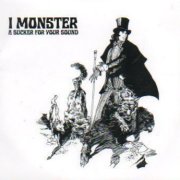 |
A Sucker for Your Sound (2009, 22.15) ***/TT½A Sucker for Your SoundA Sucker for Your Sound (remixed by Toddla T & Ross Orton) A Sucker for Your Sound (remixed by Tim Bromhead) A Sucker for Your Sound (remixed by Sawdust of Oak) A Sucker for Your Sound (remixed by Putty Thumb) A Sucker for Your Sound (remixed by Tansey's People) |
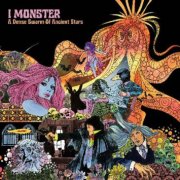 |
A Dense Swarm of Ancient Stars (2009, 48.51) ***½/TT (TT½) |
||
| The Circus of Deaf A Sucker for Your Sound Goodbye Sun Cool Coconuts Lust for a Vampyr Mr. Mallard She's Giving Me the I Escape From New Yorkshire |
Dear John Inzects Inzects 2 - The Mutations Sickly Suite Part One: How Are You? Part Two: Out Of The Shadows Part Three: Gone A Pod is Waiting The Best |
[bonus tracks on various eds. include: You Won't Get Home Only a Show Wake Up Tony Let's Swing] |
|
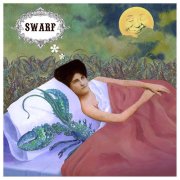 |
Swarf (2013, 36.38) ***½/TTT |
|
| Hey You Beautiful Land Colourspill Checkout Luv Early Morning Robert Food for the Sea Magic Man She Sucks The Holy Man |
The Priest's Tale A New All Powerful Brain |
|
 |
Presents People Soup (2013, 35.42) ***/½ |
|
| Come Out Biting Dumb Head Beat the Drum Flavours A Bullet Through the Heart Black Cat Bamboozle Knock the Door Down Devils on Horseback |
The Inevitable Plastic Soup Explosion Damn Your Hide |
|
 |
Bright Sparks (2016, 41.21) ****½/TTThe Fantastic Tale of Dr. MOOG and the Birth of the Shimmering BeastThe Uncertain Contents of the BUCHLA Box Alan R Pearlman and the ARPiological Exploration of the Cosmos The Ballad of Harry CHAMBERLIN and the Surreptitious Window Cleaner The Bradley Brothers Realise the Transmutation of the Chamberlin to the MELLOTRON London 1969—The Wizards of Putney Deny Accusations of Unholy Enchantment at the Electronic Music Studios (EMS) Electronic Dream Plant (EDP)—The Dirt in the Ointment The Further Adventures of K. FREEMAN and His Incredible Machine of a Thousand Strings |
Current availability:
Mellotrons used:
I've had a brave stab at describing I Monster in their Samples etc. review: to my ears, a sort-of electronica/lounge/pop crossover, although that nowhere near covers their broad range of influences. Never the fastest of workers, 2009's A Dense Swarm of Ancient Stars is only their third album in over a decade, so ridiculously diverse that anyone not attuned to their collective mindset may have trouble taking in everything that's going on. Stylistically, it veers between the fairground madness of opener The Circus Of Deaf, the pop/reggae of A Sucker For Your Sound and the pseudo-'70s pop (vocoder non-optional) of Goodbye Sun and that's just the first three tracks, which may give you some idea of its diversity.
 |
Five of the album's tracks (counting all three parts of Sickly Suite as one) feature Jarrod Gosling's mighty Mellotron, bought from the defunct Add N to (X), who in turn bought it from the once-mighty Pallas, making it actually a rebadged Novatron. Anyway, they add strings to A Sucker For Your Sound, strings and flutes to Goodbye Sun, inaudible flutes to Lust For A Vampyr, inaudible choir to Escape From New Yorkshire (ho ho!), strings and flutes to Sickly Suite Part 1, choir and trombones to Part 2 and full-on strings (at last!) and flutes to Part 3, although I presume that means the flutes on Mr. Mallard are produced by something else entirely. In addition, of the bonus tracks on various versions of the album, You Won't Get Home (from the vinyl) has inaudible flutes and very nicely upfront strings (grinding to a halt at the end of the track), while an iTunes bonus, Let's Swing, adds strings and inaudible choirs.
Incidentally, A Sucker For Your Sound was released as a single in '08, a six-track promo version appearing early in '09, featuring the original track plus five remixes, largely (as you'd expect) barely recognisable, from the techno of Toddla T & Ross Orton's, Tim Bromhead's punky take on the track and Sawdust of Oak's balladic version. Two remixes feature new Mellotron parts from Jarrod, with Sawdust of Oak's mix adding not only the usual strings and flutes, but recorders and the harpsichord-like 12-string guitar, while Tansey's People's mix features the vibes prominently, alongside the strings, flutes and 12-string again.
2013's Swarf (named in honour of the tiny chips of material removed by planing, turning etc.) is an outtakes album, hence the title, although to compare anything here to discarded scrapings is self-deprecation taken to a ludicrous extreme. Top tracks include gorgeous Julia Dream-esque opener Hey You Beautiful Land, all too brief, the outrageously glam rock (first time round) Checkout Luv, the Kinks-go-electronic Food For The Sea and Pulp-esque closer A New All Powerful Brain. Jarrod plays Mellotron on most tracks, with flutes and cellos on Hey You Beautiful Land, choirs and strings on Colourspill, volume-pedalled choirs on A New All Powerful Brain and strings on all other highlighted tracks, assuming I haven't missed anything.
According to their Bandcamp page, the same year's Presents People Soup (or I Monster Presents People Soup) had an odd genesis. I shall précis... Jarrod claims they bought an old reel-to-reel recorder at a car boot sale (Americans: yard sale), and were given a box of tapes to go with it. One of them, labelled 'the girls', allegedly contained recordings of a group of young women singing. Having presumably sampled the best bits, our intrepid duo set to recording music to accompany the anonymous ladies, the result (copyright? Huh?) being this ten-track download-only release. Do we believe this obvious drivel? This blatant nonsense? This preposterous load of old bollocks? This pack of lies? Well, it could be true... Then again, it could be (and, frankly, sounds like it's) the aforementioned divergence from the literal truth. In other words, don't believe a bloody word of it. However, this concoction of '70s-style female chorus vocals and glam rock-informed electronica is a great deal of fun, possibly at its best on glammy opener Come Out Biting, the groovy Flavours, Black Cat Bamboozle and swing-era pastiche closer Damn Your Hide. Jarrod (no doubt) adds distant Mellotron choirs to Devils On Horseback, albeit briefly, and, in case you're wondering, the cover scan's meant to look like that.
2016's Bright Sparks is a work of utterly twisted genius, an audiovisual project dedicated to eight of the greatest synths and weird keyboards of the '60s and '70s, including Moog, ARP, Buchla, EMS and, of course, the Chamberlin and Mellotron. Rather than the usual (as far as there is a 'usual') approach to such albums, viz. taking each device and recording an instrumental composition of limited originality with it, the I Monster boys have written completely potty songs around each of their subjects, complete with lyrics describing their history, failings and foibles. I'm not exaggerating when I say that this is completely unique, like (he says, struggling for suitable comparisons) early '80s synthpop crossed with lounge music, more recent dance styles and something by the BBC Radiophonic Workshop, all overseen by the quality control department at a synth manufacturer of your choice. Best tracks? I refuse to quote full titles, but the Moog (pronounced 'Mogue', of course), Chamberlin, EMS and EDP (you know, the Wasp) ones are particularly good, the last-named featuring cult synth hero John Foxx, other collaborators including Tara Busch and British humourist Stewart Lee.
Tape-replay? Of course! Only on the two relevant tracks, but that's probably enough on a project like this. The Ballad Of Harry CHAMBERLIN And The Surreptitious Window Cleaner features, alongside its crazed lyric and ultra-catchy tune, the M4 owned by the chaps at sample kings GForce, with brass, flutes, trombone, harpsichord, you name it, really, plus rhythms from a Rhythmate, while The Bradley Brothers Realise The Transmutation Of The Chamberlin To The MELLOTRON gives us flutes, strings and vibes from Jarrod's M400. This really is quite fucking splendid. Buy it now.
I'm not quite sure to whom I should be recommending I Monster, although what they do is undeniably worth hearing. With elements from prog, dance, lounge and a dozen other genres, this is for broad-minded individuals (with the emphasis on 'individual') only; almost the legendary, probably nonexistent 'something for everyone', then? Very British, although, contrarily, that could aid its popularity amongst Anglophiles worldwide, particularly those of a 'lounge revival' bent. Recommended, anyway. Incidentally, you'll also hear Jarrod's Mellotron on I Monster offshoots, Skywatchers and Regal Worm.
See: Samples etc. | Skywatchers | Regal Worm
 |
Where Are We Going (1976, 43.58) ***/TTT½Sunrise (a New Day)(Part One) Where Are We Going (Part Two) Where Are We Going Solar Wind |
Current availability:
Mellotron used:
ID were a quartet from Maryland who recorded just the one album, Where Are We Going, before imploding. It's basically an acid guitar freakout from beginning to end, showcasing the 'talents' of one Gary Oickle, who proves himself to be highly adept at wanking furiously on his chosen instrument, to little effect, as hoping for any remote hint of melody or invention from him is essentially equivalent to pissing in the wind. Don't get me wrong; the album has loads of energy, just a certain lack of... focus, maybe. While not entirely instrumental, vocal appearances are few and far between, as the band (or Oickle) are clearly far more interested in just letting rip.
The copious amounts of Mellotron strings on display here were played by David Oickle and engineer Bob Halsal; it's essentially used for chordal backdrops to the lead guitar work, although there are a few moments of near-solo playing, not least towards the end of the arse-about-face titled (Part One) Where Are We Going, which closes side one. And is that Mellotron brass on Solar Wind? Hard to tell, mainly due to the beyond-murky production, not to mention the fact that the Mellotron sits mainly in the upper registers, in a vain attempt to be heard over the ever-present guitar. So why haven't I given this a higher T rating, given how much Mellotron is actually present? Lack of originality, never mind listenability; there's an awful lot of Mellotron here, but you're so exhausted by the end of the first (and shortest) track that the album's end really came as some sort of relief. A random ninety-second burst of this stuff is exhilarating; forty-five minutes is mind-numbing.
IQ (UK) see: |
 |
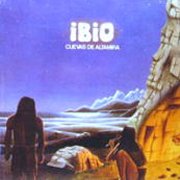 |
Cuevas de Altamira (1978, 34.52) ***/TT½Cuevas de AltamiraRomance del Conde Lara La Virulencia del Ferrocarril Las Chicas de Laredo A lo Alto y a lo Bajo Pastor La Baila de Ibio |
Current availability:
Mellotron used:
Ibio made a pleasant enough sound on their sole LP, Cuevas de Altamira, although it's all a big unengaging, to be honest. Mid-paced, with little of 'that Spanish sound' that many of their countrymen employed (an honourable exception being Pastor) and vocals (when they were used) from a guy who sounds like he'd have been better off doing cabaret on the Costa del Sol. There's some nice folky stuff here and there, although comments like 'the Spanish Strawbs' aren't very helpful or accurate.
Despite using a string synth, Ibio also used their Mellotron for string sounds and make quite a nice job of it, although their Mellotron use is quite a long way from innovative. It lifts the album where it's used, however; best track is probably opener Cuevas De Altamira itself. So; not bad, not great. Don't pay full whack for it.
 |
Tutankhamon (1978, 36.52) ****/TTTT |
|
| Tebas Prólogo Sacerdotes de Amon Amarna Lying on the Sand Amenofis IV Himno al Sol La Muerte |
Close to God Too Young to Be a Pharaoh Tebas (Reprise) |
|
Current availability:
Mellotron used:
Iceberg are primarily known as a pure fusion band, but their debut, Tutankhamon (presumably a concept piece), is a masterpiece of prog/fusion crossover, with great material and fiery playing from all concerned. There is the occasional lapse, like the drum solo in Close To God (why does anyone record studio drum solos?) and the average balladry of the opening section of Too Young To Be A Pharaoh, but, overall, this is an excellent album that should appeal to both prog and fusion fans.
Josep Mas "Kitflus" slaps Mellotron all over the first four tracks, then, mysteriously, ignores it until near the end of the album. Tebas opens with a full-on symphonic section, Mellotron strings to the fore, with more of the same on the following three tracks and Too Young To Be A Pharaoh. There are (male voice?) choir parts on Sacerdotes De Amon and Tebas (Reprise) too, making this something of a distinct Mellotron Album. So; recommended on all fronts; I may even come back to this in a while and bump up its star rating. Excellent.
 |
Iceberg Does it Live: 100th Week at Walt Disney World (1978, 38.31) ***/TTTTSide OneSide Two |
Current availability:
Chamberlins used:
Michael "Iceberg" Iseberg's Iceberg Does it Live: 100th Week at Walt Disney World (thanks for the name correction, Nick) is one of the odder albums you'll find on this site, up against some stiff competition. Basically, Iceberg spent many years playing a weekly set on his synth setup (the "Amazing Iceberg Machine") in a silver pyramid at Walt Disney World. As you do. So why isn't he deified in the world of EM? Because he was an entertainer, that's why. He played snippets of popular tunes (classical bits, film stuff, standards, lots of Disney, unsurprisingly, er, Boston's More Than A Feeling...), all while keeping a very non-techie crowd interested. I said he was an entertainer...
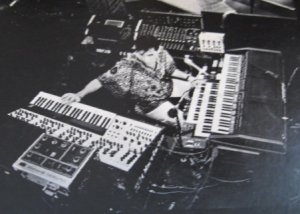 |
I've no idea how long his sets tended to be, but the album features a forty-minute segment of, as it says on the tin, his 100th week's performance. After ten minutes or so of playing, he goes into a demo section, where he tells his audience (and, by default, us) what's going on. Basically, he had around thirty instruments in his setup, controlled from just three keyboards, several years pre-MIDI, which is a pretty jaw-dropping technological feat by anyone's standards back in '78. The picture on the sleeve show a Polymoog and an Oberheim 4-voice, other obvious contenders being a Yamaha CP-70 piano and several Chamberlins. One of these was presumably a manual model, from where he could control (I believe) another three, any or all of which could have been keyboardless 'remote' models, a path down which the Mellotron was destined never to go.
Although there's loads of synth work (mono- and poly-) on the record (not to mention a snippet of Moog Taurus at one point - looks like he had a de-pedalled set in his rig, going by the pic to the right), the Chambys crop up all over the place, with a little flute melody on the Zip-A-Dee-Doo-Dah segment (yes, I'm afraid so), followed by what sounds like Chamby banjo, percussion, brass, female voice, loads of sound FX (animals, jeers etc.)... And, of course, lots of strings, including a solo section on side two. You want Chamberlin? And analogue synths? You gottem.
The album has several downsides, not least Iceberg's unfortunate habit of singing along, rather tunelessly, to several of his ditties, while his choice of material is seriously cheeso, though it has to be said, what did you expect? Black Sabbath? I believe Iceberg sells CD-Rs of the album himself, although his website seems to've disappeared, so I don't know how you'd contact him. He still plays, but I rather doubt whether his beautiful setup from thirty-odd years ago is still functioning, or even extant. Wonder what happened to all that gear...? Anyway, a rather strange album, but worth hearing, if only for a laugh.
See: James Griffin & Co.
 |
Three Sheets to the Wind (1996, 42.43) **½/T |
|
| If You Dare Catapult Pomegranate Bleeding Shame Stare at the Sky No One's Watching Alive Again A Sound Awake |
Glass Bottom Get You Back |
|
Current availability:
Chamberlin used:
The only interesting thing about California's Idaho (huh?) seems to be their guitarists' use of four-string tenor guitars, although the end result is merely a low-end guitar sound, rather than anything really radical. Usually described as 'slowcore', Idaho continually hover on the brink of 'boring', at least to this listener. Shame just might be the album's best track, although it's hard to say why. Maybe I simply find it the most appealing? Duh.
Patrick Warren does his usual Chamberlin thing on just one track, with a string part on Glass Bottom that shows the instrument at its best, sounding almost real, if you ignore the lack of glissando between chords. Overall, this album sounds like Low, if they forgot how to write interesting slow material. Rather dull, I'm afraid, with one decent Chamby track.
 |
Ideal Free Distribution (2007, 47.04) ****/TTTT |
|
| Apples and Oranges Saturday Drive Tropic of Cancer Someone's Gonna Die The American Myth Elegant Sunbeam Mr. Wilson Son of a Gun |
Nine on a Side New Madrid, 1811 All Over the World Hit the North All That Once Was Wonderful Red Letter Days |
|
Current availability:
Mellotron used:
Despite forming in 1997, it's taken Ideal Free Distribution a decade to produce their eponymous debut, which turns out to be a minor masterpiece of modern psychedelia, influenced yet not entrapped by the late-'60s. Obvious influences include The Beatles (of course) and The Zombies, but brief psych-period Kinks and the West Coast scene also play their part in defining the band's sound. It's difficult to pinpoint standout tracks on an initial listen; suffice to say, it's all good and the ten-year wait has clearly been worthwhile.
Although initially a trio, the band have now expanded to a loose seven-piece, including Marci Schneider on Mellotron and castanets (!) The Mellotron's all over the highlighted tracks above, with a triply-overdubbed part in Son Of A Gun, a flute melody overlaying a strings-and-cello backdrop, with plenty of (mainly) strings use on everything else. After something of a Mellotron dearth at the beginning of the album, once it kicks in properly, it doesn't let up for the rest of the record, in highly pleasing fashion. Is it real? Not entirely sure, but it sounds pretty good, but then, when played sympathetically, modern samples tend to. Anyway, a very nice little album, loads of (hopefully real) Mellotron. Worth the effort.
 |
World Woven (1972, 38.14) ***/TTMother AmericaBaby's Gonna Grow Diamond Fire Children Mellow Your Soul Landlady Flip Side Colorado Morrow All Join Hands |
Current availability:
Mellotron used:
The Ides of March, including Jim Peterik, later of the phenomenally successful Survivor, are primarily known for their major 1970 hit Vehicle. Their brass-rock sound bore comparison with Chicago or Al Kooper's Blood, Sweat & Tears, to the point where many confused Vehicle with that band, in the way that some people still think Focus' House Of The King is by Jethro Tull, but then, ignorance is endemic.
1972's World Woven was the band's original incarnation's third album of four. It's a kind of prog-lite effort, definitely an influence on Styx, Kansas and their ilk; in fact, the refrain from opener Mother America must've influenced Styx' Suite Madame Blue a few years later. Which, in turn, influenced Judas Priest's Beyond The Realms Of Death... And on it goes. It's actually a rather confused effort, switching between the pre-pomp of Mother America and Children to the rock'n'soul of Mellow Your Soul and All Join Hands, not to mention the folk-influenced Landlady... Then again, who said a band had to sound consistent throughout a whole album? That seems to be a recent conceit and, after all, this appeared in the latter stages of the only period of real freedom the industry's ever allowed...
I presume it's keys man Scott May on Mellotron, with a few string chords at the end of Diamond Fire, more of the same throughout Children (obvious 'real strings substitute' playing), flutes and strings on the balladic Landlady and strings on Flipside, the only track to feature any brass, with a slightly superfluous trumpet solo. I don't believe this is on CD, but if you're interested in the roots of American prog, it's worth a listen if you can track down a copy.
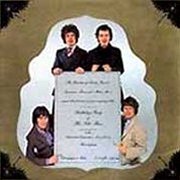 |
The Birthday Party (1968, 28.48) ****/TT½ |
|
| The Skeleton and the Roundabout Happy Birthday The Birthday I Like My Toys Morning Sunshine Follow Me Follow Sitting in My Tree On With the Show |
Lucky Man Mrs Ward Pie in the Sky The Lady Who Said She Could Fly End of the Road |
|
Current availability:
Mellotron used:
The Idle Race seem to have been consigned to a strange, forgotten corner of UK psych, which is doubly odd as they were not only a perfectly good band, but also the first recording home of future ELO man Jeff Lynne. Their debut effort, The Birthday Party, is a good little typical psych-pop album, with all the period detail you could ask for, married to an excellent selection of songs. The best-known of these is wonderful opener The Skeleton And The Roundabout, but The Birthday, I Like My Toys and Mrs Ward are all right up there, too.
There's a fair helping of Mellotron (almost certainly a studio instrument) on the album, played, I believe, by Barry Pritchard, although I can't find any reference to him, just rhythm guitarist Dave Pritchard. Anyway, The Skeleton And The Roundabout has what sounds like some form of muted brass (saxes?), while I Like My Toys has a classic Mellotron flute melody, as does Morning Sunshine. Lucky Man has more of those probable saxes (key click and all) and Mrs Ward has both strings and pitchbent flutes. The strings on End Of The Road are definitely real, but I think I'm correct in my Mellotronspotting on the other tracks.
They followed up with The Idle Race (***); not bad, but not really a patch on its predecessor, with no Mellotron. There was a third album, too, Time is (***), recorded after Lynne left to join The Move and subsequently ELO, but it's nothing to write home about. There were also several single-only tracks, including their other best-known number, Imposters Of Life's Magazine, but, sadly, no more Mellotron to be heard. The band's entire recorded output is available on a double CD set, Back to the Story (***½), almost certainly the easiest way to track this material down.
 |
Memories of Connecticut (2003, 38.10) ***/T |
|
| Details Memories of Connecticut How Lucky Wayward Heart Thinking About You Take Me Away Please Don't Say Goodbye Older and Wiser |
Rock and Roll Song Westport Maybe You'll Come Back to Me |
|
Current availability:
Mellotron/Chamberlin used:
Andy If? I've no idea, although it doesn't seem likely that's his real name. 2003's Memories of Connecticut (his only release?) has a cowpunk feel to its Americana, his voice a snarl, even on the more melodic numbers. Highlights? How Lucky, Take Me Away and Westport, as much for their lyrics as their music.
Producer Rami Jaffee plays Mellotron and Chamberlin, with Chamby solo male voice on Take Me Away and Chamby vibes on Please Don't Say Goodbye and Older And Wiser, although whatever Mellotron sound was allegedly utilised on How Lucky is entirely inaudible.
 |
Outoja Maita (2008, 41.08) ***/T½ |
|
| Perillä Pieneen Tilaan Muukalaisia Tarvitaan Se ei Suostu Katoamaan Hullu Ihon Ikävä Ei Kukaan Pahaa Tarkoita Outoja Maita |
Mä Jäädyin Taas Yö |
|
Current availability:
Mellotron used:
Johanna Iivanainen (that's a 'double eye') is a Finnish folk/pop singer-songwriter, 2008's Outoja Maita being something like her tenth album in under a decade, a perfectly acceptable set of, well, folky pop songs, at their best on Se Ei Suostu Katoamaan, Ihon Ikävä and Mä Jäädyin Taas.
Esa Kotilainen plays his Mellotron, with background chordal flutes and strings on Pieneen Tilaan, occasional strings on Hullu and flutes and strings on Ihon Ikävä. Perhaps not the most exciting album you'll hear all year, but, at the very least, pleasant and inoffensive, which makes a nice change.
 |
Ill Mondo & Neal Rames! (2009, 38.39) **½/½ |
|
| The Jump Off Rock 10 2 Fold Freezer Burns Scriptures Natalie Moore Sound Sharp! Gold Rush |
Suicide Doors No Knot Never I Know Right $#!+ Out of Luck Enterlude Pops Past |
|
Current availability:
Mellotron used:
Ill Mondo and Neal Rames? The former are the Oakland-based production duo of Jeff Smothers and Johnny Igaz, while I can't tell you anything about the latter (the lyricist, apparently), although it's clearly no coincidence that his name's a spoonerism of 'real names'. It's not even obvious what their collaborative album's actually called, although Ill Mondo & Neal Rames!, complete with its witty, Joe Jackson-spoofing sleeve art, seems the most likely contender. And it sounds like...? Hip-hop, effectively, albeit hip-hop with a solid core of musicality, elements of soul and jazz inserted into the expected sample-based environment.
Matt Henry Cunitz plays his Mellotron on opener The Jump Off, with a grungy, buried-in-the-mix flute/vibes mix, by the sound of it. I'm sure this is good at what it does, but it certainly isn't worth hearing for a minimal Mellotron part.
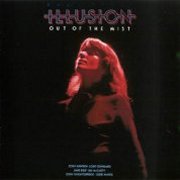 |
Out of the Mist (1977, 36.00) ***½/TTTIsadoraRoads to Freedom Beautiful Country Solo Flight Everywhere You Go Face of Yesterday Candles Are Burning |
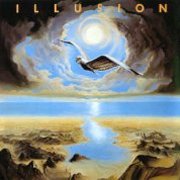 |
Illusion (1978, 37.23) ***½/TTTMadonna BlueNever Be the Same Louis' Theme Wings Across the Sea Cruising Nowhere Man of Miracles The Revolutionary |
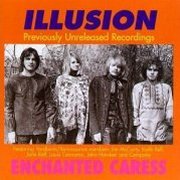 |
Enchanted Caress (1990, 36.59) **/T |
|
| Nights in Paris Walking Space The Man Who Loved the Trees Getting Into Love Again As Long as We're Together Slaughter on Tenth Avenue Living Above Your Head Crossed Lines |
You Are the One All the Falling Angels |
|
Current availability:
Mellotrons used:
In 1968, the Yardbirds fragmented and guitarist Jimmy Page recruited a new lineup, initially called the New Yardbirds; you know the rest. Bassist Chris Dreja became a professional photographer and vocalist Keith Relf and drummer Jim McCarty formed a new outfit with Relf's sister Jane, bassist Louis Cennamo and ex-Nashville Teens keyboardist John Hawken called Renaissance. This lineup made two albums, then in what appears to have been some bizarre power struggle, the entire band was replaced by the musicians more commonly associated with the name. The original Renaissancers went on to play in various bands; Cennamo and Keith Relf eventually formed the excellent Armageddon, releasing their self-titled effort in 1975, while Hawken spent a couple of years in The Strawbs. Tragically, Relf died in 1976, electrocuted at home by a malfunctioning guitar amp.
The following year, the surviving members of the original Renaissance, with a couple of other guys, reformed as Illusion, named after the second Reniassance album. Their sound is best described as somewhere between The Strawbs and what the then current Renaissance lineup was doing; lush folky prog, if a little lightweight. Jane Relf's voice had lost none of its quality in the intervening years, while several of the other members had honed their playing skills in the interim. Hawken's stay in the Strawbs had introduced him to a wider keyboard palette, including the Mellotron, to which the band added real strings on a few tracks. There's little stylistic variation between Illusion's two 'proper' albums; Out of the Mist uses slightly less Mellotron than Illusion, but there isn't that much to choose between them on that front. The closing tracks on each album probably feature the Mellotron the most, but it's mainly strings and choir used here and there, rather than blanket coverage. The material is indubitably pleasant and highly melodic, but don't expect much excitement. Chiefly for fans of Renaissance, old or new.
Even more mainstream than their first two releases, Illusion's Enchanted Caress, finally released in 1990, consists largely of demos for their third album, recorded in 1979. Most of the tracks are short, MOR-ish pop songs that make their first two albums sound like King Crimson. On steroids. Believe me, this is NOT an album for your inner Rock Monster, or even for anyone wishing to hear something at the more lightweight end of the prog spectrum. It's not all completely horrible; The Man Who Loved The Trees sounds more like their earlier work, their version of Richard Rogers' Slaughter On Tenth Avenue (also covered by synthesist Larry Fast as Synergy) is pretty decent and, although not great, closer All The Falling Angels (from several years earlier), is Keith Relf's last recording, also the only Mellotron track here, with a rather ordinary string part from Hawken. n.b. Said track has recently been included as a bonus on a reissue of Renaissance's rather poor 1971 effort Illusion, as All The Fallen Angels, giving you even less reason to buy this crummy album.
See: Renaissance | Strawbs